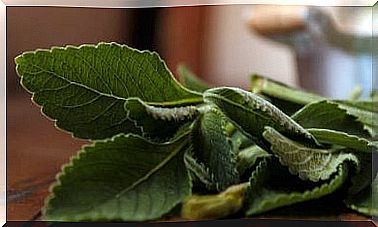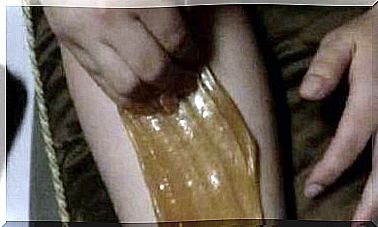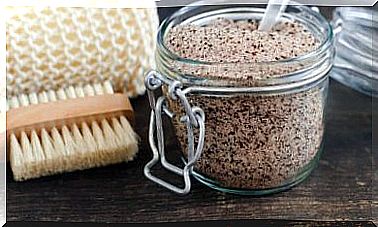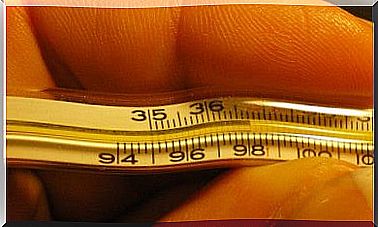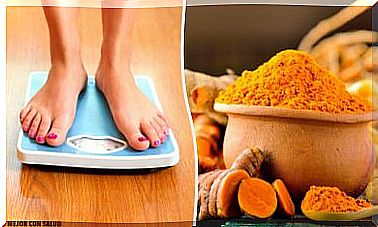Strategies To Help Your Child Stop Biting Their Nails

Stopping nail biting can be more complex than we might first think. This is for two reasons. First, when habits are ingrained, they are often difficult to change; second, biting your nails can be a way of expressing emotions. Of course, all is not lost and it is always possible to find strategies to help your child stop biting (and eating) their nails. Find out which ones are next!
Tips to stop biting your nails

The habit of biting nails is called onychophagia and affects mainly children from 3 years of age, being more common during puberty and adolescence. This bad habit is usually abandoned by the child without the need to intervene, but what can we do if it persists and she starts to get hurt?
Here are some practical ideas, but first let’s find out why some kids bite their nails. Is there any kind of predisposition or psychological cause that triggers this habit?
Causes of childhood onychophagia
When we talk about onychophagia, we are not referring to a specific act, but to a constant and repeated situation over time, that is, the child regularly bites his nails. It is an obsessive behavior that the child often performs without being aware of it.
According to data published by the Revista de Odontopediatría Latinoamericana:
Among the main causes of this problem are, mainly:
- the stress
- the anxiety
- The boredom
- Emotionally destabilizing situations for the child, such as the death of a loved one, the birth of a baby brother or family problems.
Another possible cause could be imitation : the child observes one of the parents (or both) biting their nails and repeats the habit without even noticing. For this reason, it is very important that you also stop biting your nails.
Why is nail biting harmful?

The main problem with this habit is that the child or teenager can hurt their fingers and even cause color changes and deformities in the nails.
One of the main problems is the appearance of infections caused by the transport of bacteria from the nails to the mouth and vice versa.
In addition, a child with this disorder also tends to nibble on the cuticle and the skin around the nails. The appearance of sores can generate anxiety in the child due to the bad appearance of their hands. Thus, she enters a vicious circle from which it can be difficult to escape.
Dental problems may also occur, such as malocclusion, wear on front teeth, appearance of bruxism, wear on tooth enamel and damaged gum tissue, among others.
Strategies to help your child stop biting his nails
The first step in changing a habit is to find out what causes it. Why does your child bite his nails? Does he do this at specific times? Can you identify if it is related to fear, anxiety, tension or boredom? Do some research and then get to work!
You can tell your child every day not to bite his nails, and the habit can still continue. Therefore, we propose that you adopt one of the following strategies to help your child change this behavior.
1. Explain to the child the reasons why he should stop biting his nails

We know you keep repeating this every day, but we suggest that you take it a step further. Take time to explain the consequences of this bad habit, adapting the information to your age and level of understanding.
2. Be your “alarm”
Talk to your child and make arrangements with him from that moment on. That way, he’ll know to stop biting his nails every time he sees you. You can even set a password to try to turn the situation into a playful and accomplice moment between the two of you!
3. Buy a teether
An interesting option might be to give your child a teether to help release anxiety and tension. There are many on the market, even designed specifically for this purpose.
4. A toy to keep your hands busy
Offer your child a hand spinner , also known as a fidget spinn er, a squeeze ball, or a Rubik’s cube. The idea is to keep your hands busy and so stop biting your nails. Want another idea? Encourage your child to play sports, as this can be a great way to relieve tension.
5. Cut your nails daily
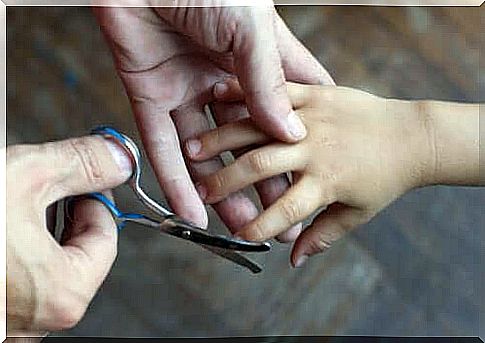
There is no better way to avoid temptation than to nip it in the bud! If your child keeps his nails short, it will be harder to bite and hurt himself. So make it a habit to trim your nails every day.
6. Bitter enamel
This solution from our grandmothers can be quite effective. Paint your child’s nails with a bitter nail polish so that biting them is no longer so tempting. If you don’t have bitter nail polish at home, you can put lemon on your nails.
7. Award system
Help your child not to eat their nails using a points and rewards system. For every day he doesn’t bite his nails, he can earn a point; when you have a certain amount of points, you can give him a prize. It can be a movie session, a bike ride or whatever you can imagine that will bring pleasure for both of you!
Changing a habit takes time. If you want to help your child stop biting their nails, be patient and accompany them every step of the way. Remember that it is essential that he feels supported, supported and loved by you.



